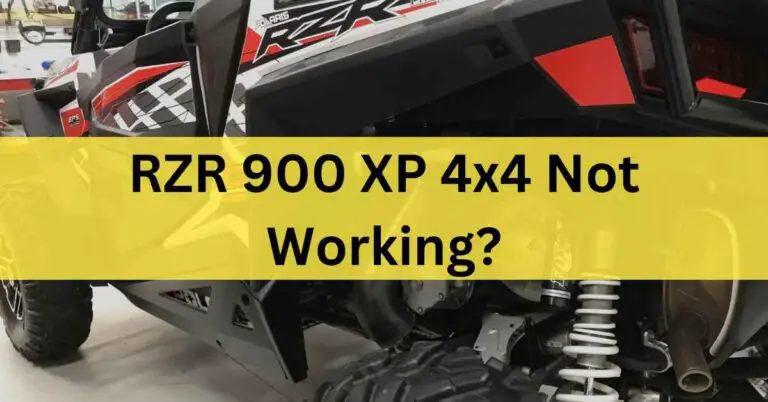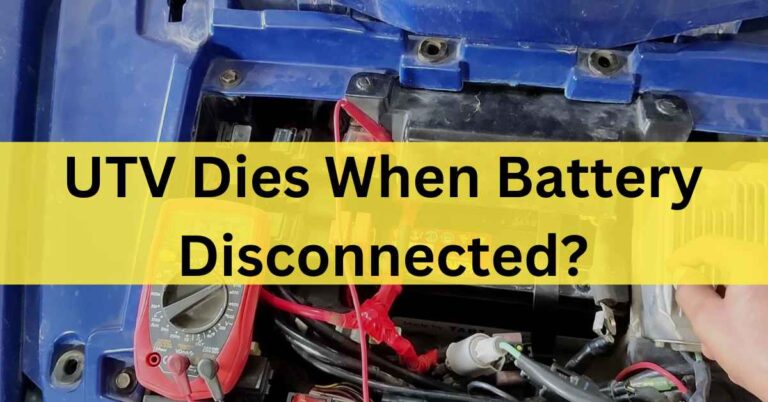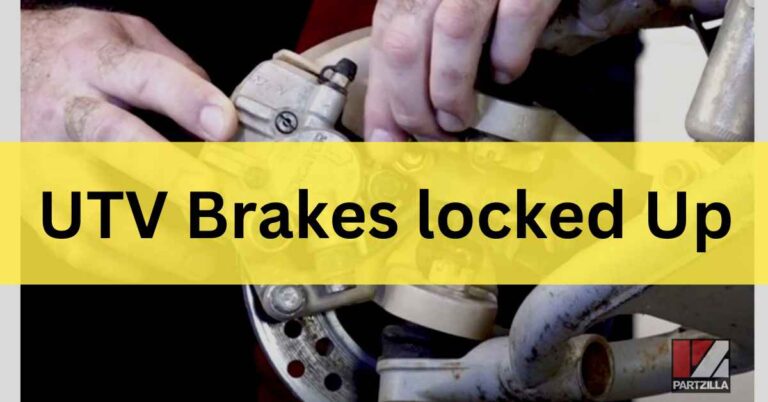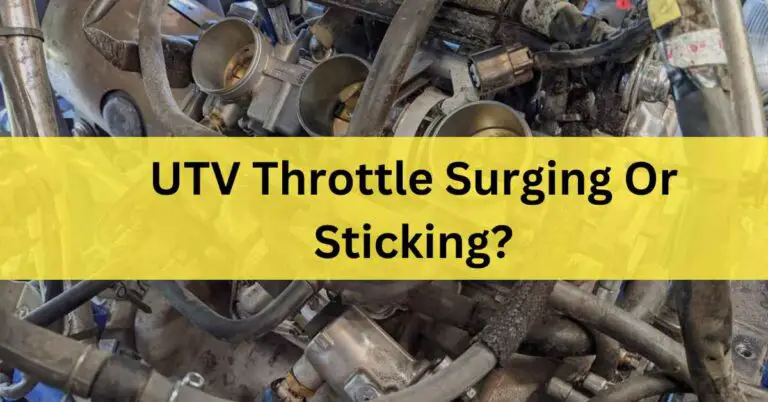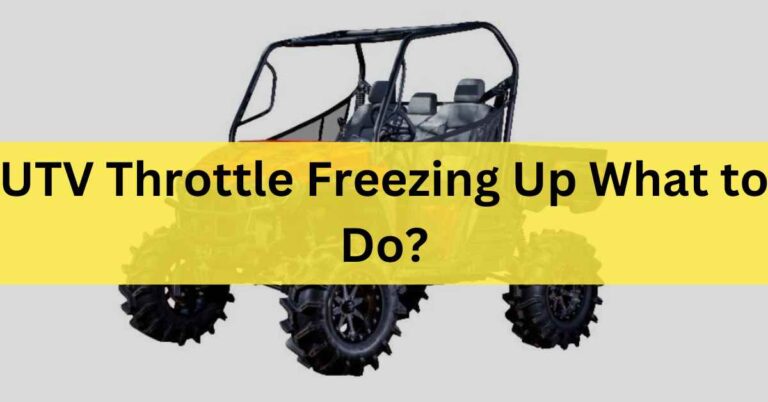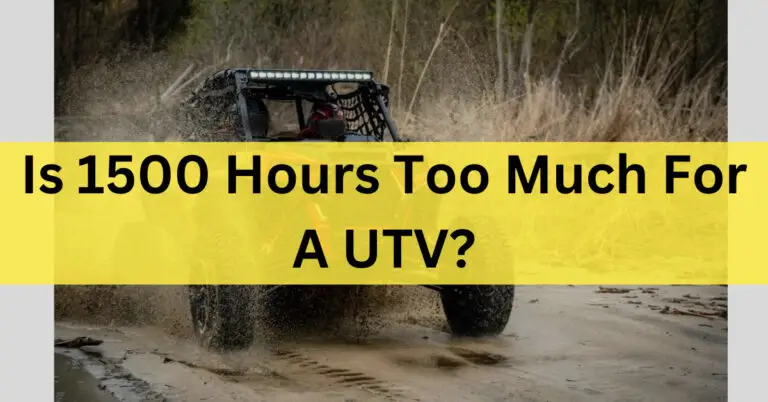UTV Brakes Won’t Build Pressure – How to Fix the Problem In 2024
UTVs are designed to navigate through rugged terrains, and their braking systems are critical to ensure rider safety. Brake problems can arise for various reasons, from poor maintenance to mechanical issues.
Are you facing trouble building pressure in your UTV brakes?
UTV brakes not building pressure issues are usually caused by the disturbed brake adjustment, the air in the brake system, worn brake pads, damaged brake controls, a faulty master cylinder, or a faulty brake caliper.
In this article, we will explore all these common causes of UTV brake problems and their corresponding solutions.
Common Causes Of UTV Brake Problems:
As I mentioned above, the following are the major causes of UTV brakes not building pressure, and we will take a deep look into all these issues one by one.
- Brakes Need Adjustment
- Air in the Brake System
- Worn Brake Pads
- Damaged Brake Controls
- Faulty Master Cylinder
- Faulty Brake Caliper
1. Brakes Need Adjustment:
The wrong setting of the brakes is among the most common reasons for brake issues in UTVs. Over time, the brake cable or hydraulic system becomes stretched, reducing braking power.
If this happens, the brakes may need adjustment. Adjusting the brakes involves tightening or loosening the cable or hydraulic system to improve braking performance.
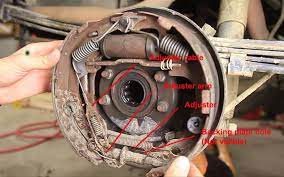
If you are confused about how to set your UTV brakes, it is preferable to check the operating manual or a professional repair.
2. Air Trapped In The Brake System:
Another typical reason why brake issues in UTVs occur is air in the brake system. Air may enter the braking system if the hydraulic oil levels are low or if there is a leak.

The brakes’ effectiveness can be decreased, and air bubbles can make the brake pedal feel squishy. Bleeding the brakes is the greatest method for getting rid of air from the system.
Opening the brake lines and letting the air out while adding fresh brake fluid is known as bleeding.
3. Worn Brake Pads:
Brake pads are a crucial component of the braking system in UTVs. They hold the brake’s rotor to slow down or stop the car.
Brake pads might deteriorate with time and lose effectiveness in stopping the vehicle.
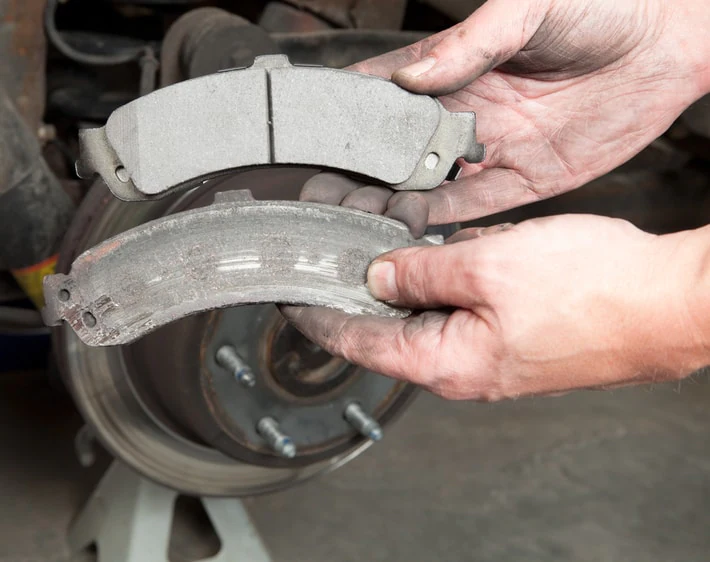
Worn brake pads can cause various issues, including decreased braking power, excessive noise, and longer stopping distances.If your UTV experiences these symptoms, you need to replace the brake pads.
4. Damaged Brake Controls:
Brake controls, including levers and cables, can become damaged or worn over time. This damage can result in reduced braking power, erratically, or failure.
Regular brake control inspections help identify issues early on, preventing potential accidents. Replace any damaged or worn brake controls immediately.
5. Faulty Master Cylinder:
The master cylinder is a critical braking system component, converting the force from the brake pedal into hydraulic pressure.
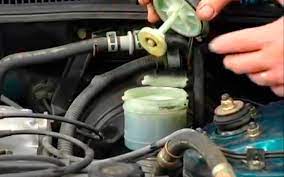
If the master cylinder is faulty, it can cause various brake problems, including decreased power, spongy brakes, or brake failure. In such cases, the master cylinder may need to be replaced.
6. Faulty Brake Caliper:
The brake caliper squeezes the pads against the rotor to slow down or stop the UTV. If the brake caliper is faulty, it can cause the brake pads to wear unevenly or stick, reducing braking power.
You need to have your brake calipers checked by a qualified mechanic if you notice any irregularities in your brakes.
Preventative Measures for UTV Brake Issues:
Brake issues can arise due to any of the above-discussed reasons. To avoid potential brake issues, it’s crucial to take specific precautions.
1. Regular Maintenance Check Up:
Routine maintenance inspections are essential to ensure the brake system is fine. These checks help identify potential problems before they become major issues that can lead to accidents.
2. Often Check Your Brake System:
It is recommended to check the brake system before every ride or at least once a month, depending on how often the UTV is used.
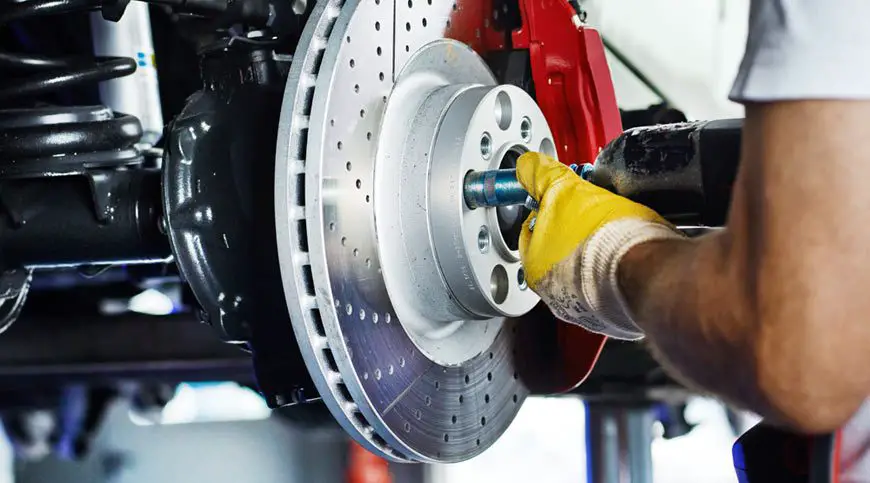
It is crucial to follow the maintenance schedules advised by the manufacturer, which may change depending on the type and model of the UTV.
What Should You Look For During Brake Checks?
While performing brake checks, look for any symptoms of wear and tear damage, or leaking in the brake pads, discs, caliper, and hydraulic systems.
Look for signs of corrosion, rust, or debris affecting the brake system’s performance.
Make sure the brake fluid level is within the recommended range by often checking it. If you notice any issues, consult a certified UTV mechanic for repairs.
Proper Use Of The Brake System:
Proper use of the brake system is crucial in preventing brake issues and ensuring the safety of the driver and passengers.
Importance Of Proper Braking Technique:
Improper braking technique can cause excessive wear and tear on the brake system, leading to failure.
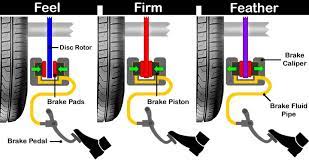
It is essential to avoid sudden and harsh braking, as this can cause the brakes to overheat, leading to premature wear of the brake pads and rotors.
Instead, apply gradual pressure on the brake pedal, allowing the vehicle to slow down gradually.
How To Use The Brake System Safely?
Use the foot pedal and hand lever to apply the brakes when required. Avoid riding the UTV with only one hand on the steering wheel, as this can affect the operator’s control over the vehicle.
Always follow the manufacturer’s recommended weight capacity, as overloading can strain the brake system excessively.

Frequently Asked Questions:
What Should I Do If I Find A Brake Fluid Leak In My UTV?
Brake fluid leaks can compromise your ability to stop your vehicle. Start by locating the leak’s source and assessing the issue’s severity.
Sometimes, a leak may be due to a loose or damaged fitting, which can be easily tightened or replaced. More serious leaks may require professional repair or replacement of brake components.
Can I Repair My UTV Brakes Myself?
Yes, you can repair your UTV brakes if you are skilled enough. DIY brake repairs require specialized tools and equipment and can cause issues if not done correctly.
If you’re not confident in repairing your UTV brakes, it’s best to leave the job to a qualified professional.
What Should I Do If My UTV’s Brakes Lock Up?
Uneven brake pad wear or a braking system issue might be to blame for your UTV’s brakes locking up.
Start by looking at the brake lines and the level of brake fluid. Faulty brake pads may require professional repair or replacement.
Final Words:
The brake system is a critical component of any UTV, comprising brake pads, rotors, calipers, and brake lines.
Regular maintenance checks and proper brake system use can prevent issues due to wear and tear, corrosion, debris, and improper use.
Safety should always come first. Follow all safety guidelines the UTV manufacturer provides and consult a certified UTV mechanic for prompt repairs if any issues are detected.
Related Post:

